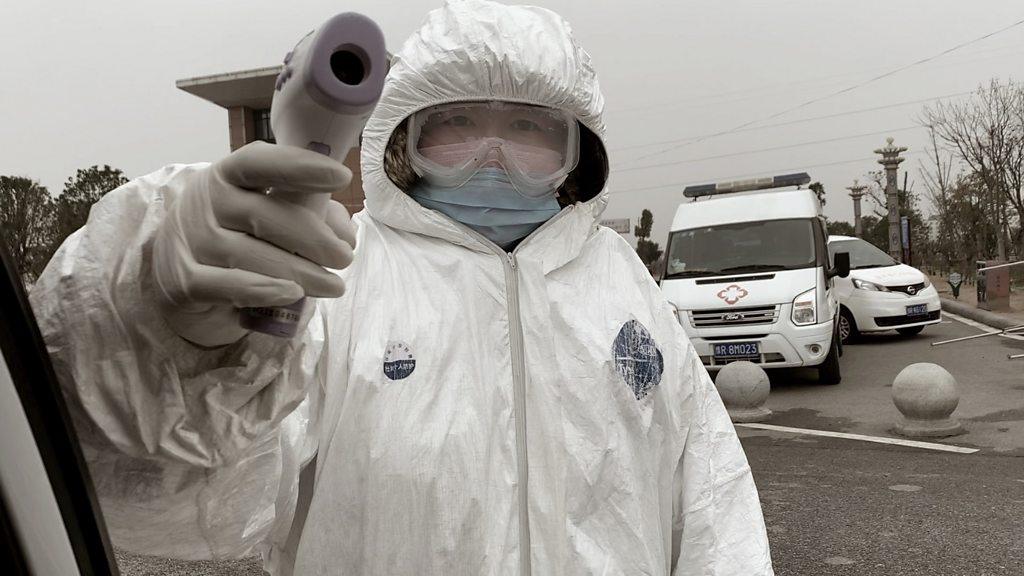Coronavirus: How the UK dealt with its first Covid case
- Published

It's exactly 12 months since medics were summoned to what became the first confirmed case of Covid-19 in the UK. A year on, the BBC has spoken to the people who found themselves at the centre of the drama.
It was a Wednesday afternoon when a 23-year-old Chinese national called the NHS 111 phone line from his hotel room in York city centre. The University of York student, known in medical journals only as "B", was suffering with a fever, a dry cough and muscle pain. His 50-year-old mother, "A" - who had flown to the UK from Wuhan, in Hubei province, a week earlier - was also feeling unwell with a fever, cough and sore throat.
When she arrived in the UK, coronavirus had spread from the Chinese province to countries including Thailand and the US, with some 500 confirmed cases and 17 dead. On 23 January - the day patient A landed in the UK with the student's father - Wuhan and its population of 11 million people, became the first in the world to enter coronavirus lockdown.

On the evening of 29 January, two paramedics from the Yorkshire Ambulance Service were called to the 196-room Staycity apartment-hotel in Paragon Street, York. Dressed in white hazmat suits, they told reception staff they were responding to a potential coronavirus case, before heading to a first-floor room.
Until then, there had been a lot of suspected cases, but none that had been confirmed, recalls Keith Freeman, Staycity's chief operating officer. "You were hoping, in the back of your head, that it's another false alarm. You're also thinking 'what are the chances?'"
But once he found out one of the guests had flown in from Wuhan, the world's coronavirus capital, his team "started to panic a bit". "At that point it was about trying to just be quite level-headed and operational, to work out what the next steps would be."
Unbeknownst to staff at Staycity, paramedics left the hotel with the family about 20 minutes after arriving, slipping out of a fire exit to the waiting ambulance. From Paragon Street, they were taken to the regional infectious diseases unit at Castle Hill Hospital, near Hull.
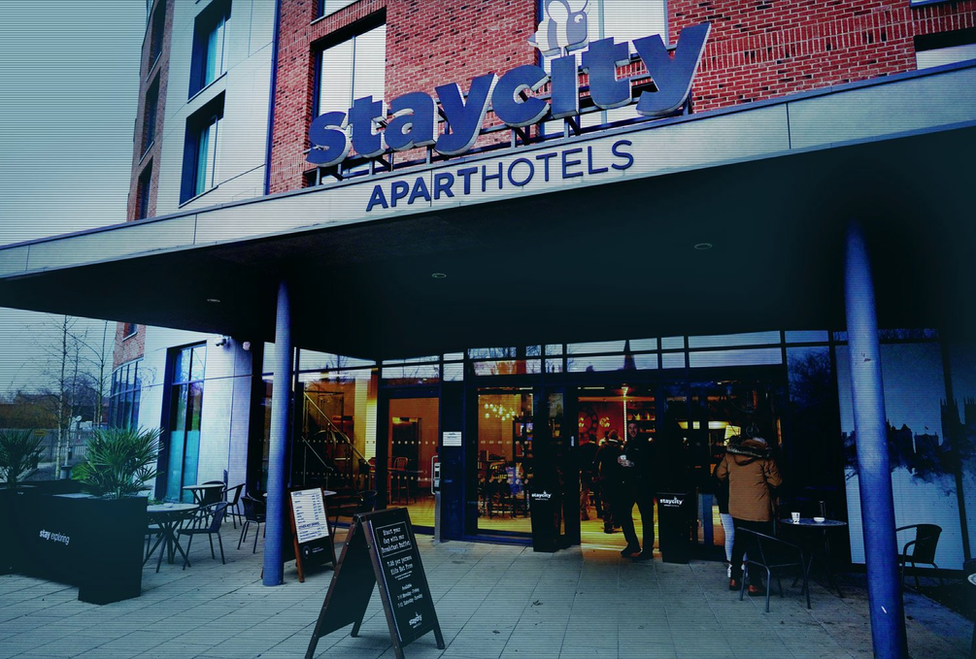
The 23-year-old Chinese student called the NHS 111 phone line from his hotel room in York
Thirty miles away, Nick Easom, Anda Samson and Patrick Lillie - all specialists in infectious diseases - had been at a retirement dinner when they were suddenly called back.
Rather than feeling apprehensive, Dr Easom recalls some "excitement" at the possibility of seeing the UK's first suspected coronavirus cases. He had to send a colleague to buy him an electric razor, allowing him to trim his beard to ensure his personal protective equipment would fit properly.
Just days earlier, he and his colleagues had agreed that a handful of cases in the UK was to be expected, but it would be "slightly unusual if we saw any in Hull". "We thought in all likelihood we would get them in and test them and it would be a dry run to make sure all our processes were working well," he says. The next day, the mother and son tested positive for coronavirus - the first people to do so in the UK.
Dr Samson had been about to go to sleep when she received the news. "I did not really know what to expect," she says. "At that point we knew this was something big and it was bigger than just us, but we never really expected that it would take over the world in the way that it did."
She remembers thinking how "incredibly well" the patients looked, with only "a bit of a fever and some flu-like symptoms". "I could see straight away there was nothing here we needed to do, we just needed to make sure they wouldn't contaminate anyone else."
At the hotel, Mr Freeman's team was anxiously seeking information following the paramedics' visit. By now, members of the press were gathering "by the minute" on the pavement outside the hotel, talking to guests as they came and went.
On 30 January, Mr Freeman asked Public Health England (PHE) if the hotel needed to close and remembers being told: "We don't want anyone to be fearful, it's only suspected, just don't go near the room". He was told it would be 48 hours before more information was available.
But the following day, as he boarded a flight home from Edinburgh he received a call telling him the worst. The tests were positive. The flight, he says, was the "the longest hour of my life". As soon as he landed, he was straight back on the phone to formulate a plan for breaking the news to guests.
'On the back foot'
Also battling for information was York's director of public health, Sharon Stoltz, who learned of the potential outbreak from a local newspaper report. It quoted a woman who had seen a man in the back of an ambulance wearing a mask surrounded by paramedics in white "quarantine suits".
The city, like the rest of the UK, was "already on high alert", Ms Stoltz says, but official confirmation of the suspected cases did not arrive until later. "Everything was being controlled centrally and the media were faster than the official communications channels, which was a real headache for us," she said.
Having to wait put Ms Stoltz and her colleagues "on the back foot", she says, making it harder to manage residents' growing fear and anxiety. "I felt it was important that we were as transparent as possible and could share as much information as possible," she says. "They wanted to share little, I wanted to share more. There was little bit of tension at the start."

When PHE publicly confirmed the two cases in the city on 31 January, University of York vice chancellor Prof Charlie Jeffery was 500 miles away from home in the Dutch city of Maastricht.
A photo taken during an academic parade through the streets captures him taking calls from a colleague in the UK. It was to inform him that one of York's coronavirus patients was a student at the university.
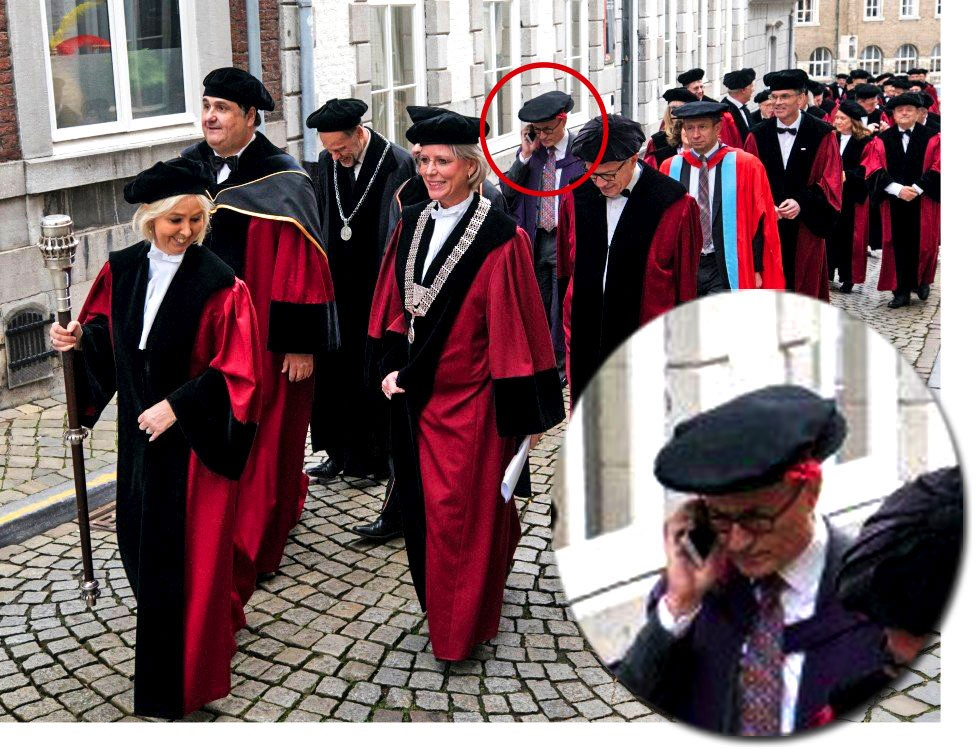
Despite the distance, he was prepared. Just a week earlier, a group had been set up to plan the university's response to any potential outbreak.
He arrived back in York the next day and, before the patient's links to the university were made public, assembled an incident room on campus, including staff, student union officials and experts in biology, medicine and virology.
'A moment of uncertainty'
Later that afternoon, the university called a press conference and Prof Jeffery spoke to reassure people the student had not visited the campus, situated about two miles outside the city. But rumours were already flying.
Fingers started to point at a student seen coughing in a lecture days earlier, and the university had to "work very, very quickly and carefully to make sure people kept things in perspective and knew all that they could know about the situation," Prof Jeffery says.
Standing by his side at the press conference was Samara Jones, president of the student union. She had been preparing for a netball match that morning when she learned of the patient's links to the university.
Within hours, she was facing the world's media. "In the days leading up to it there had been a lot of rumours," she says. "I think people had seen something, but no-one was quite sure."
By this stage the virus - now known as 2019 novel coronavirus - was linked to 304 deaths in China, with 294 in Hubei province. Despite the press conference, Ms Jones said, some students were still nervous.
Speaking at the time, one told the BBC she was "scared" and had started wearing a face mask on campus, though others said it was "business as usual". In an effort to combat some of the concerns, the university repurposed its admissions call centre to handle queries from worried students and their parents.
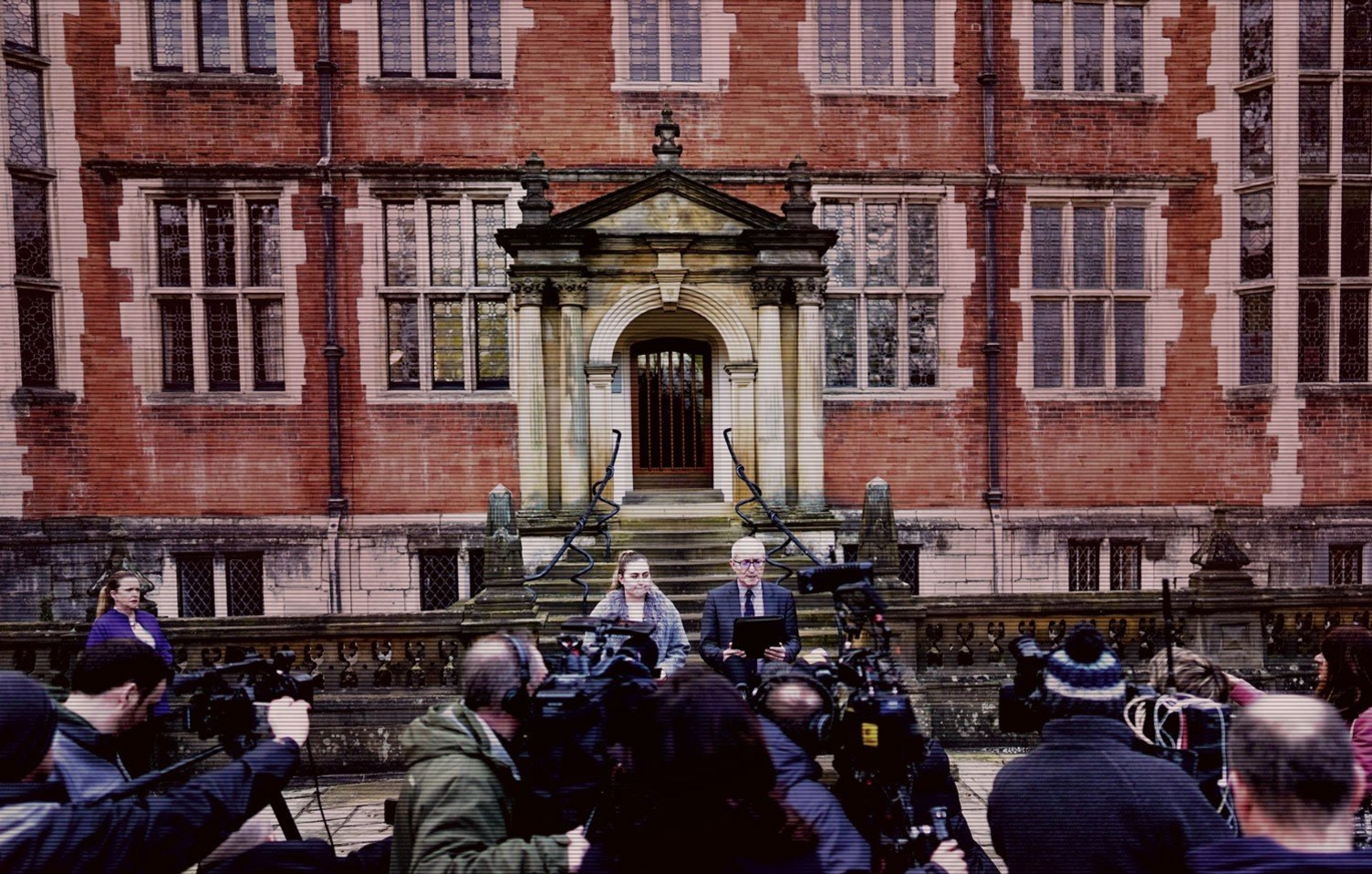
Professor Charlie Jeffery, right, said rumours were flying around
As more details emerged, the mother and son were moved again, this time to the high-level isolation unit at the Royal Victoria Infirmary, in Newcastle. PHE had said the risk to the public was low, but pressure was mounting to trace the family's exact movements.
Chinese New Year celebrations had been taking place in York that week, and the city was gearing up to welcome thousands of tourists for its annual ice trail.
Will Zhuang, president of the York Chinese Association, said the community had been talking "all the time" about the virus, swapping stories from their relatives back home and debating the need to wear face masks. To mark the year of the rat, a gala attended by local dignitaries, families and students had been held at the Barbican, next door to the Staycity hotel.
There was widespread concern when news of cases in York began to break. "We became extremely nervous at that time... would it really be a breakout in York?" Mr Zhuang said. "Not just these two from the same family but spread out in the university. Everybody was talking about who they are."
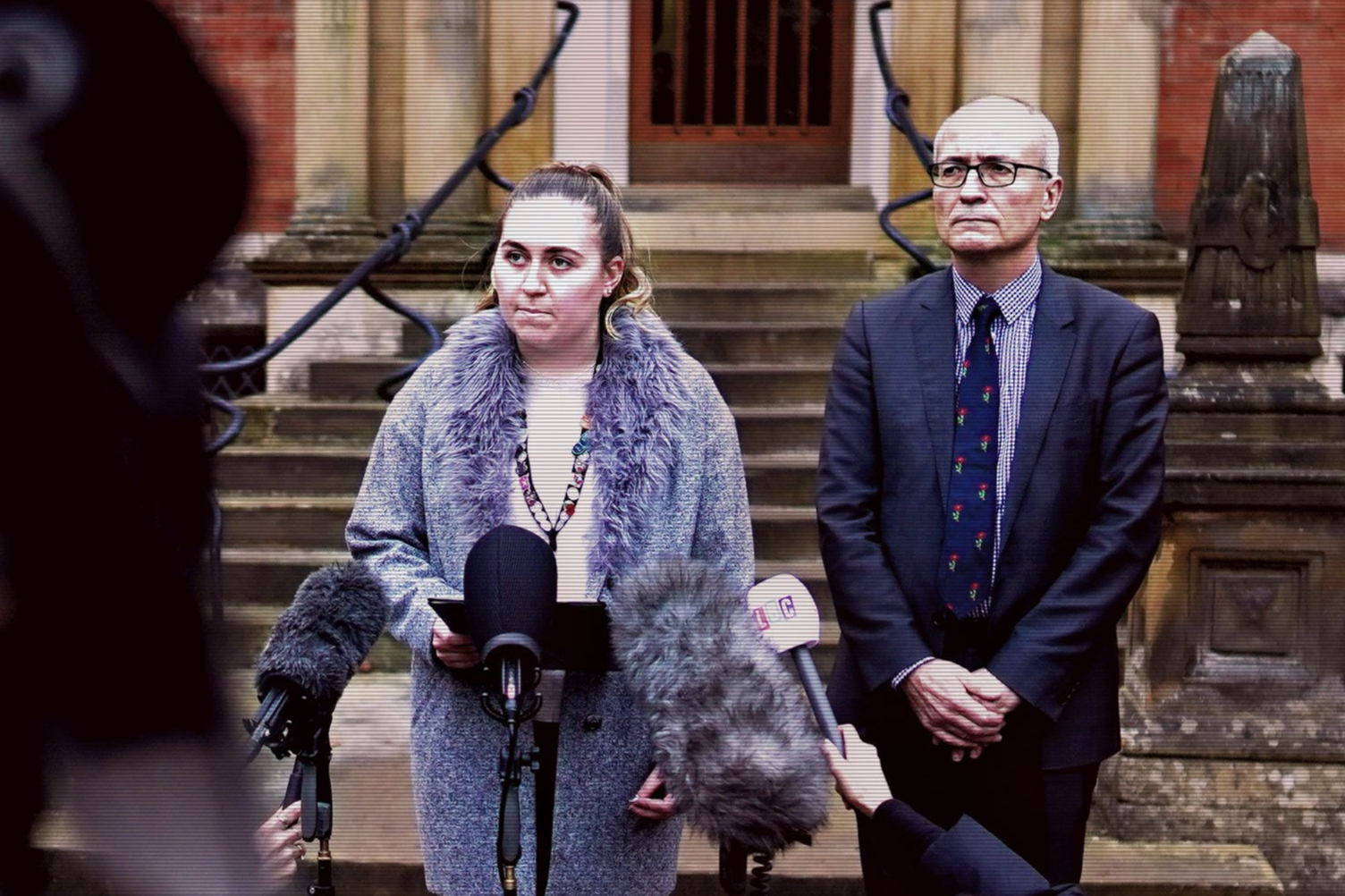
Student union president Samara Jones alongside her university's vice-chancellor
Back at the hotel, with the cases now confirmed, Mr Freeman and his staff had busily tried to deal with guests angry at having been kept in the dark.
Like Ms Stoltz, Mr Freeman felt PHE had been less than forthcoming with information, and with hindsight wishes he had told customers about the suspected cases. "The word is frustrated, it felt like we were trying to get more information and we couldn't get it," he says.
Criticism of the hotel had made a difficult time even tougher, he said, but staff had "acted with every right intention from the information from PHE".
Dr Mike Gent, PHE's deputy director for Yorkshire and the Humber, said managing and sharing information at the time had been "very difficult". "Do I think that the communication was right throughout the incident to everybody that was involved? I would probably say probably not," he says now. "In any national emergency you will find a degree of national interest and control and you just have to accept that."
'A UK issue now'
Fears were now growing globally as images emerged of the empty streets in Wuhan and cases were confirmed in more and more countries. It was also discovered the student had stayed overnight at the Vita Student accommodation block in Lawrence Street - a building used by students at the University of York and York St John University.
With the eyes of the nation trained on the city, PHE and Prof Jeffery moved quickly to offer reassurance. "It was a challenge to manage anxieties," he says. "They were not just anxieties within the university or universities, and not just anxieties within the city of York, this was a moment when it became clear in the UK that what had been a little bit abstract, something happening in China, in Italy, was now an issue for the UK."
Eighty miles north, in Newcastle, the student and his mother were making a steady recovery. According to medical reports, external, PHE identified 52 individuals who had come into contact with them, including taxi drivers, hotel staff and 45 healthcare workers. None tested positive for coronavirus.
By 4 February, the pair were symptom-free. They tested negative the next day and were discharged on 17 February. The student's father also tested negative throughout despite being in close contact.
No further cases were recorded in York until 6 March - more than five weeks later.

The identities of A and B have remained a mystery ever since. Union leader Ms Jones said she never learned the student's name and was "somewhat happy that way". "I think there were some people that knew. But I think the student body very much respected the fact they were just another student and they didn't want everyone knowing that it was them."
While the outbreak in York appeared to have been successfully contained, 12 months on the number of positive cases in the UK is more than 3.7m.
Dr Lillie, one of the specialists from Hull, and a principal investigator for the Oxford-AstraZeneca vaccine trial, adds: "I do not think anyone could have guessed that night, when we had the first couple of cases, that it was going to be like this - you would have to have had a crystal ball.
"[Now] it's hard to get away from, it's very tiring but I think the light at the end of the tunnel is getting closer, we're not there, but it's coming."
Listen to When Coronavirus Came to York on BBC Radio York on 31 January at 09:30 GMT or listen later.
Related topics
- Published26 January 2021
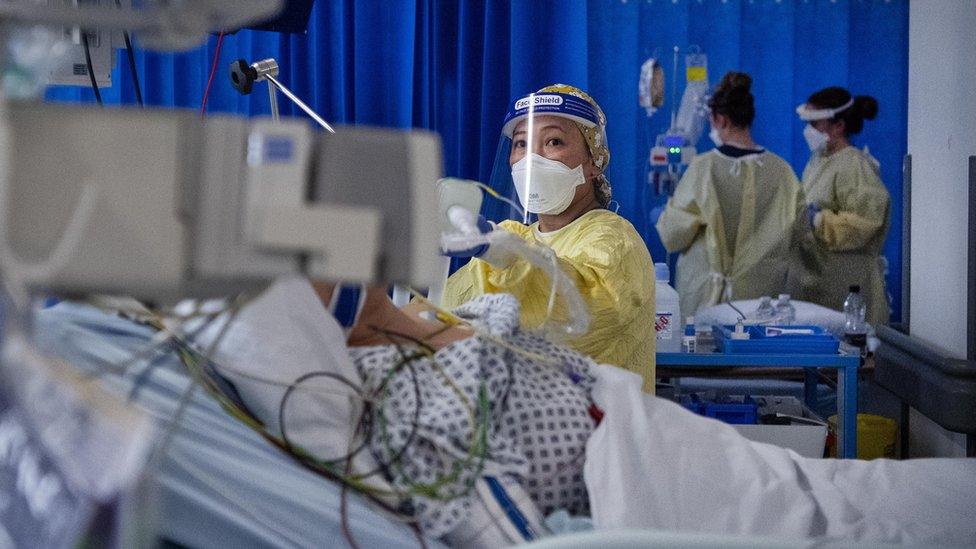
- Published22 January 2021
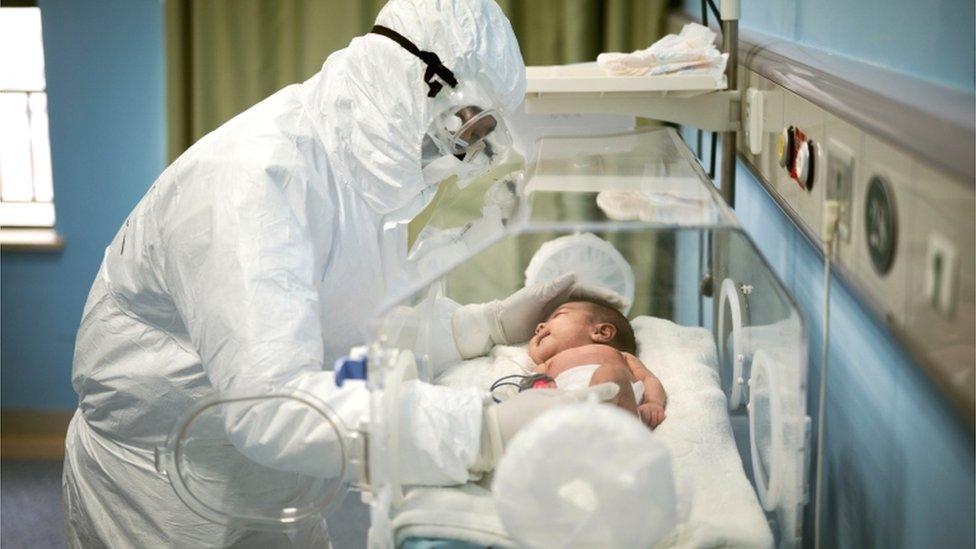
- Published18 January 2021
